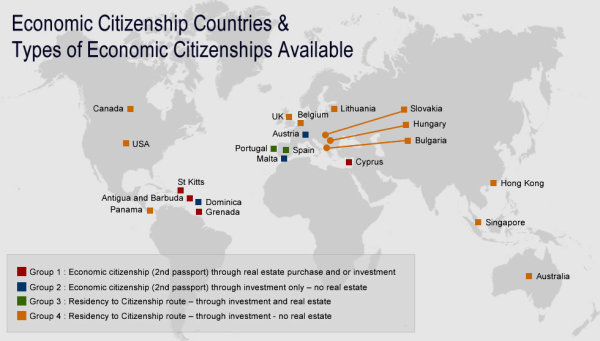As an economist, my primary objection to excessive government is – or at least should be – based on foregone growth. After all, government spending (whether it is financed by taxes or borrowing) diverts resources from the productive sector of society and results in the misallocation of labor and capital.
Based on my blood pressure, though, I get even more upset about the perverse unfairness of Washington.  It galls me that well-connected insiders obtain undeserved wealth by using the coercive power of government.
It galls me that well-connected insiders obtain undeserved wealth by using the coercive power of government.
And I get especially agitated when I think about ordinary Americans, most of modest means, who have less income and lower living standardsbecause of DC’s corrupt profligacy.
So when I write about shutting down the Export-Import Bank, closing the Department of Housing and Urban Development, and reforming the tax code, I make the standard economic arguments for smaller government. But I also explain that reform is a way of dealing with political sleaze.
Heck, insider corruption is so pervasive that it even causes problems in those rare instances when government is doing sensible.
Let’s look at the example of the EB-5 program that was set up to attract wealthy foreigners to America if they create jobs.
This should be a feel-good story. After all, everyone presumably agrees that these are best type of immigrants since there’s no danger that they’ll wind up on the welfare rolls.
In theory, the program is very simple. As explained by Wikipedia, “individuals must invest $1,000,000…, creating or preserving at least 10 jobs for U.S. workers.”
In reality, though, the program is a bureaucratic mess because…well, simply because that’s the way government operates.
And that means plenty of opportunities for corrupt insiders to work the system.
Here are some of the unseemly details of one example. As reported by theWashington Post, it involves an Obama appointee, the Governor of Virginia, and the brother of Hillary Clinton.
The now-No. 2 official at the Department of Homeland Security intervened on behalf of politically connected favor seekers — including Democrat Terry McAuliffe not long before he was elected Virginia governor, a new report from the department’s inspector general has found. The intervention, on behalf of McAuliffe’s GreenTech Automotive company, “was unprecedented,” according to the report… The long-anticipated report reviewed Mayorkas’s management of the EB-5 program, which allows foreign nationals who create jobs in the United States to obtain green cards. The report concluded that Mayorkas’ actions “created an appearance of favoritism and special access.’’ …McAuliffe’s company was working Gulf Coast Funds Management, a firm that specializes in obtaining EB-5 visas for investors. Gulf Coast was led by Anthony Rodham, brother of then-Secretary of State Hillary Rodham Clinton. …In addition to the case involving McAuliffe’s car company, the inspector general focused on actions Mayorkas took on behalf of a film project in Los Angeles and construction of a casino in Las Vegas, the latter supported by Nevada Democrat Harry Reid, who was Senate majority leader at the time.
Speaking of Senator Reid, the Washington Free Beacon exposes his sordid – and extended – efforts to use the power of his office to get special treatment for donors…and to line the pockets of his son.
The Senate’s top Democrat was more deeply involved than previously known in an effort to secure U.S. visas for Chinese investors in a Las Vegas casino despite the concerns of career federal officials, according to an inspector general report released on Tuesday. …Executives at the casino’s parent company, a client of Reid’s son Rory, donated thousands of dollars to Reid’s campaign after he helped speed consideration of its applications for visas for its Chinese investors. That expedited consideration came despite warnings from career USCIS officials that applicants had forged paperwork, tried to conceal the sources of their investment, and, in one case, had ties to a child pornography business. …new details in the inspector general’s report reveal that his involvement was deeper and more prolonged. Reid requested and received regular updates from then-USCIS director Alejandro Mayorkas on the status of SLS’ EB-5 applications, agency employees told the IG. The IG report criticized Mayorkas for creating an “appearance of favoritism” in the EB-5 application process. …the senator also had connections to Stockbridge/SBE Holdings, the company behind the SLS project. His son Rory, then an attorney at Lionel Sawyer & Collins, a Nevada law firm, represented SBE Entertainment, one of its parent companies. …USCIS employees interviewed for the IG report described the process as unfair and overly political.
By the way, notice how both examples feature a relative of a powerful politician. Why is that? Because if you’re related to a DC bigwig, donors and special interest groups figure you have inside access to the favor factory in Washington.
A very odious form of nepotism, I think you’ll agree.
Ugh, I feel like I need to shower after writing about this topic.
But now let’s step back and consider the big picture. In most cases, eliminating an agency or shutting down a program is the simple way to deal with DC corruption.
What’s the right approach, though, when government is actually doing something that’s theoretically useful.
Remember, the underlying theory of the EB-5 program is very admirable. Indeed, many nations have similar “economic citizenship” programs because it makes sense to attract successful investors to your country.
Big nations such as the United Kingdom, Australia, and Spain have policies similar to America’s EB-5 program, as do little countries such as Latvia, St. Kitts and Nevis, Cyprus, Dominica, Malta, and Antigua and Barbuda.

So why is America’s system a mess? In part, the answer is that it’s not a simple system. Unlike other nations, where a simple cash payment or property purchase qualifies an investor for residency, the U.S. system requires the creation of 10 jobs. As you can imagine, it’s not necessarily a simple matter to measure job creation, particularly if an investor is putting money into a business that’s already in operation.
And this means the bureaucrats who oversee the program have a reason to drag their feet. Which means an opportunity for well-connected insiders to manipulate the system to the advantage of their friends, cronies, donors, and clients.
Moreover, all nations require some form of background check to weed out criminals. That’s a good thing, of course, but it also gives bureaucrats another excuse to avoid quick approvals. And this creates an opportunity for lobbyists and other members of the political class to use their political pull to get their clients quick and favorable treatment.
All of which means the rule of law is eroded and replaced by discretionary and arbitrary enforcement.
By the way, I spoke at an economic citizenship conference earlier this month in Dubai. My role was to warn that greedy governments would try to hinder the mobility of investors and entrepreneurs, particularly as the welfare state gets closer to collapse.
But it was also very interesting to hear reports from various nations about the operation of their programs. Most of them have shortcomings, to be sure, but it does appear that politicians in America have made our system one of the least effective.
For further background on the seemingly unbreakable link between big government and corruption, here’s a CF&P video I narrated.
P.S. Government corruption is also a problem at the state level.
———
Image credit: Pixy.org | CC0 Public Domain.

